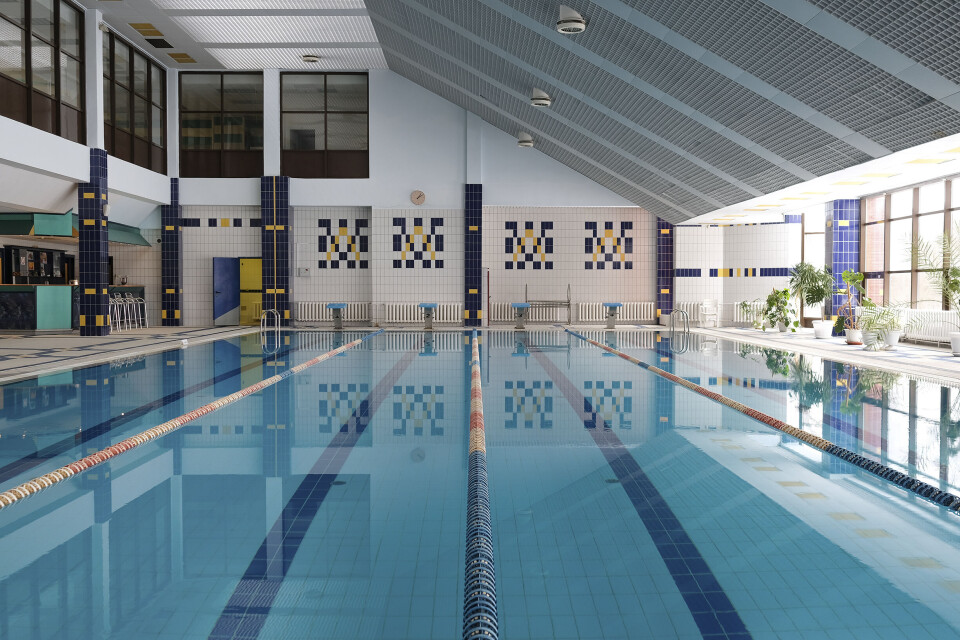-
White storks make strong return in France via nest ‘platforms’ and clipped wings
The Ligue pour la Protection des Oiseaux shares the conservation challenges in saving these birds from extinction
-
Hosting scheme in south-west France lets newcomers sample lifestyle
Households in nine Dordogne communes volunteer under Mes Nouveaux Voisins scheme
-
French boulangeries demand right for staff to work on May 1 so they can open
Artisan bakery owners can work but employees cannot, while certain industrial bakeries are allowed to remain open with workers
‘Who’d pay €20?’: Why 29 public swimming pools in France have closed
Soaring energy costs have led to one private company to take drastic action, but France’s national swimming federation is not happy

A private leisure centre company has taken the decision to temporarily close 29 public swimming pools around France because of soaring energy costs.
Read more: ‘Reduce energy consumption to avoid rationing in France’, says Macron
Vert Marine, which operates 90 pools and ice skating complexes in France, announced the decision on Monday (September 5).
“The increases in the cost of energy that we are all experiencing no longer allow us to manage our facilities in an economically balanced and socially sustainable manner and thus to carry out our public service missions,” the company stated.
Closures include pools in Limoges (Haute-Vienne), Granville (Normandy), Versailles (Yvelines) and more.
Thierry Chaix, head of Vert Marine, told AFP that the company has been forced to furlough 600 of its 2,000 employees.
He also said in a separate statement that between July and September, the company went from paying €250 per megawatt-hour to €1,000.
“If this increase were to be reflected in the price of entrance for our customers, it would have to be multiplied by three, going from €5 to €15.
Gilles Sergent, the head of another major private leisure centre company in France called Récréa, says he understands Vert Marine’s position.
“Who would agree to pay €20 to come and swim, instead of €4 or €6?” he told Ouest-France.
“The price of electricity changes every day, and this situation was totally unforeseeable at the beginning of the summer. The average person does not realise this. They benefit from government protection measures. We, the companies, pay the real price.”
He said they would not close any of their 95 centres currently and would try to come up with practical solutions.
“Some facilities could, in winter, close their outdoor pools and lower the water temperature by 0.5 to 1C,” he said.
“We want to be pragmatic, proposing solutions on a case-by-case basis.”
Around 10% of France’s 4,000 public swimming pools are managed by private companies.
Swimming federation calls for immediate reopening of pools
France’s national swimming federation, the Fédération Française de Natation (FFN), has called for the swimming pools to be immediately reopened.
“These closures have direct consequences for all children and adults who will not be able to learn to swim,” the FFN stated on Tuesday (September 6).
The federation is unhappy that the private company is able to “walk away” from its duties to provide a space for the public to swim – a choice that pools owned by public authorities cannot make.
It also called on the government to implement a energy price rise cap for leisure centres, similar to the bouclier tarifaire that is in place to protect households from soaring costs.
Gilles Sezionale, president of the FFN, said that he wanted everyone to take responsibility due to the fact that drowning figures in France are continuing to rise each year.
“It is the responsibility of each local authority to provide a place for each citizen to learn to swim – one of the fundamental skills – the lack of which can lead to the worst tragedies,” he said.
Statistics for the summer season from June 1 to August 31 2021 showed that 1,119 drowning incidents were reported, 250 of which resulted in death.
Museums, buildings, Christmas lights…
Rising energy costs are having effects elsewhere.
The mairie of Strasbourg has, for example, decided to close the city’s museums two days per week to cut down on electricity use.
The mayor, Jeanne Barseghian, said the idea was to see how they could “adapt local public services within the means that they can afford”.
The city is also considering making cuts at Christmas time, with Ms Barseghian saying that in parts of the city where there are Christmas lights, they may cut other public lighting so as not to double up.
Meanwhile, the ice rink in Niort is to be closed until October 3 for similar reasons.
In Lille, the only public buildings lit at night are those in the Grand-Place and in the square around the Opéra de Lille, a saving that could amount to 170,000 kilowatts over the year.
Related articles
Calls for ‘swimming licence’ to reduce number of drownings in France
France continues its free summer swimming lessons for children
Marseille residents loan pools so disadvantaged youth learn to swim
























